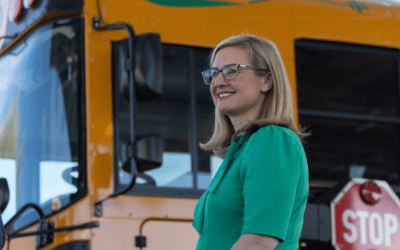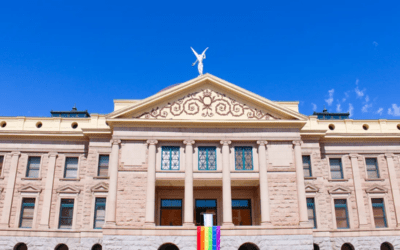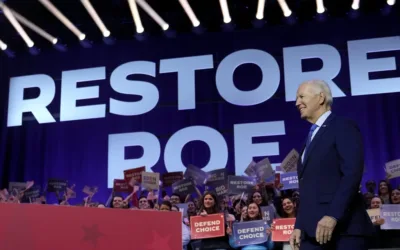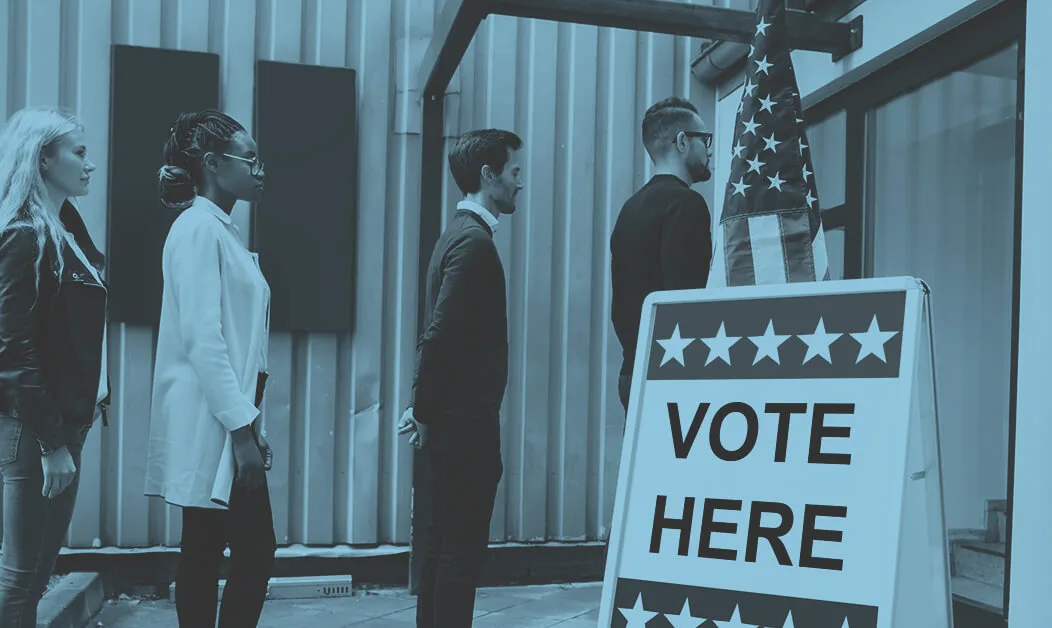
Changes for the 2020 elections in Arizona include a new voting manual, updated ballots, and more polling stations.
While the Iowa caucuses were a mess, Arizona’s chief elections official said Democratic voters shouldn’t worry because the state’s prepared for this year’s Presidential Preference Election in March.
“It is important that we not panic, spread misinformation or try to draw any conclusions about the preparedness of Arizona’s professional elections officials based on what happened there,” Secretary of State Katie Hobbs wrote in an op-ed for the Arizona Republic.
Hobbs said her office and local authorities have been working to ensure a smooth process for this year’s Presidential Preference Election (March 17), primary (Aug. 4), and general election (Nov. 3).
How Arizona Differs From Iowa
In Arizona, voters select the top candidate for their party through an election, rather than caucuses. In Iowa, voters head to locations where they cast their vote by physically grouping with supporters of the same candidate. Representatives for the party then count the supporters and report the numbers to be totaled.
A breakdown in how these counts were reported Feb. 3 was the primary cause of a multi-day delay of the Hawkeye State’s results. The state’s Democratic party (the parties head the caucuses there rather than state officials) attempted to use an app developed by Shadow Inc. to pass along the voter counts, but a coding error caused only partial data to be relayed. The confusion forced party officials to manually verify data against backups and call in results, resulting in the delay.
In contrast, New Hampshire’s primary results were in just hours after polls closed on Feb. 11. There, voters also submit their choices at polling stations rather than caucuses, as in Arizona.
Arizona’s Presidential Preference Election will basically work the same as any other election in the state does – voters will head to the polls and cast paper ballots, which are then counted by machines and sometimes people if a machine cannot read it. One thing to note, though, is Arizona’s election to choose the Democratic presidential candidate is different from the state’s primary. This election is closed, meaning only registered Democrats may vote. The primary in August, which is held for state and local offices, is open, meaning voters of any party can participate.
Changes to Election Security and Efficiency
But not everything will be the same in Arizona. Hobbs said her office has made some changes to ensure the election’s security for the state’s nearly 4 million registered voters.
Efforts include:
- Updating the state’s Elections Procedures Manual for the first time since 2014 to make sure processes are consistent and efficient.
- Transferring to a new voter registration database that is supposed to be more secure.
- Hosting an election security exercise last month that included officials from every county.
- Partnering with Gov. Doug Ducey and the National Governors Association to participate in a summit on elections cybersecurity.
- Training, certifying, or recertifying 441 elections officials, a 15% increase from 2016.
- Releasing grant money to counties to go toward increasing election security.
Maricopa County, the state’s largest and most populous, has spent $6.1 million to update its voting systems and technology before the election. Voters will see new ballots that use bubbles to designate choices instead of arrows, which often led to confusion.
“Sometimes [voters] would circle what they wanted to vote for, or they would put a check mark or sign their name next to their vote,” Maricopa County Elections Department spokesperson Erika Flores told KJZZ.
Other upgrades for the state’s largest county include new accessible voting devices and machines that can count votes four times faster than the previous ones.
“With the old equipment, we could only tabulate for six hours because of the memory space,” Flores told the radio station. “Now we can run the tabulators continuously as necessary.”
Voters faced some challenges in the state’s 2016 Presidential Preference Election after Maricopa County reduced the number of polling stations from around 200 down to just 60 locations. The shortage resulted in voters waiting in line for hours. However, this year, the county’s election department announced it would more than triple the number of polling locations to 229, with 40 of them serving as vote anywhere locations.
Fighting Disinformation
Arizona officials are also working to prevent the spread of false or misleading information about elections to voters. Sophia Solis, public information officer for the Secretary of State’s Office, told The Copper Courier this is one of the biggest threats to election security.
“Misinformation and disinformation undermine the public’s faith in elections and the democratic process overall, and we know these efforts are underway now,” Solis said. “One of the best ways we can all protect the integrity of our elections and voting is by not allowing foreign actors to sow doubt in our democratic institutions. ”
Solis said her office and local agencies are taking part in the National Association of Secretaries of State’s #TrustedInfo2020 campaign to try to make sure voters are accurately informed.
The initiative encourages voters to seek information from state and local officials, or at least double-check whatever information they find elsewhere online with notices on official websites and social media posts.
The Yavapai and Pima County Recorder’s offices took part in the #TrustedInfo2020 campaign this week, sharing updates about the beginning of early voting.
All of these efforts are to make sure Arizona’s powerful voice is heard, Hobbs said.
“All eyes will soon be on Arizona, as our state is highlighted as a ‘battleground’ that will not only have another hotly contested Senate race, but also could play a key role in deciding who wins the presidential election,” she wrote in her op-ed. “We may also be deciding key issues that will affect our state’s future, such as marijuana legalization and criminal justice reform.”
“Arizona’s registered voters … will have the opportunity to shape the future of our state and nation. “
Support Our Cause
Thank you for taking the time to read our work. Before you go, we hope you'll consider supporting our values-driven journalism, which has always strived to make clear what's really at stake for Arizonans and our future.
Since day one, our goal here at The Copper Courier has always been to empower people across the state with fact-based news and information. We believe that when people are armed with knowledge about what's happening in their local, state, and federal governments—including who is working on their behalf and who is actively trying to block efforts aimed at improving the daily lives of Arizona families—they will be inspired to become civically engaged.

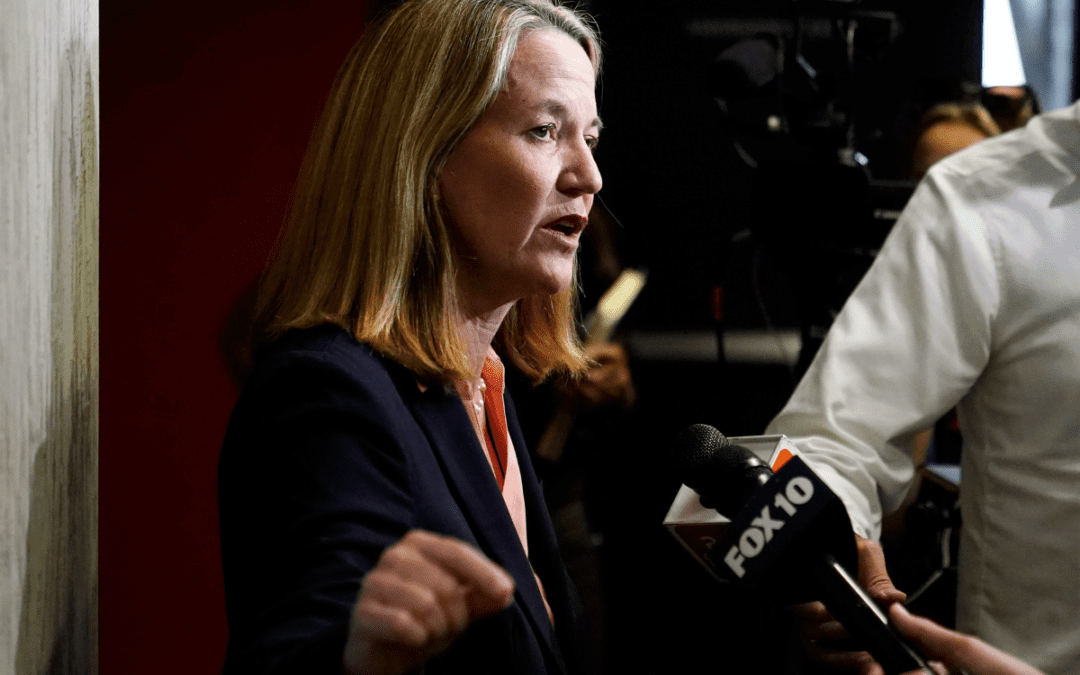
BREAKING: AG Kris Mayes sues rental corporations for conspiratorial price-fixing
It looks like, legally speaking, rent really may be “too damn high.” Arizona Attorney General Kris Mayes announced Wednesday a lawsuit against nine...
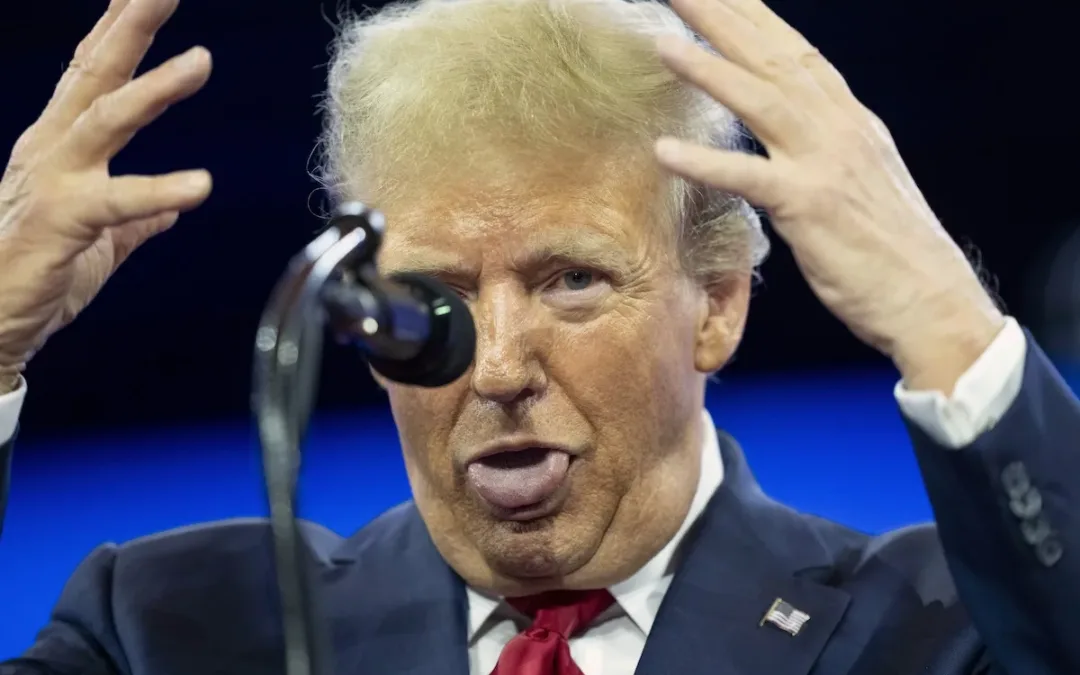
Op-ed: Trump’s journey from hosting The Apprentice to being the biggest loser
Leading up to the 2016 election, Donald Trump crafted an image of himself as a successful businessman and a winner. But in reality, Trump has a long...
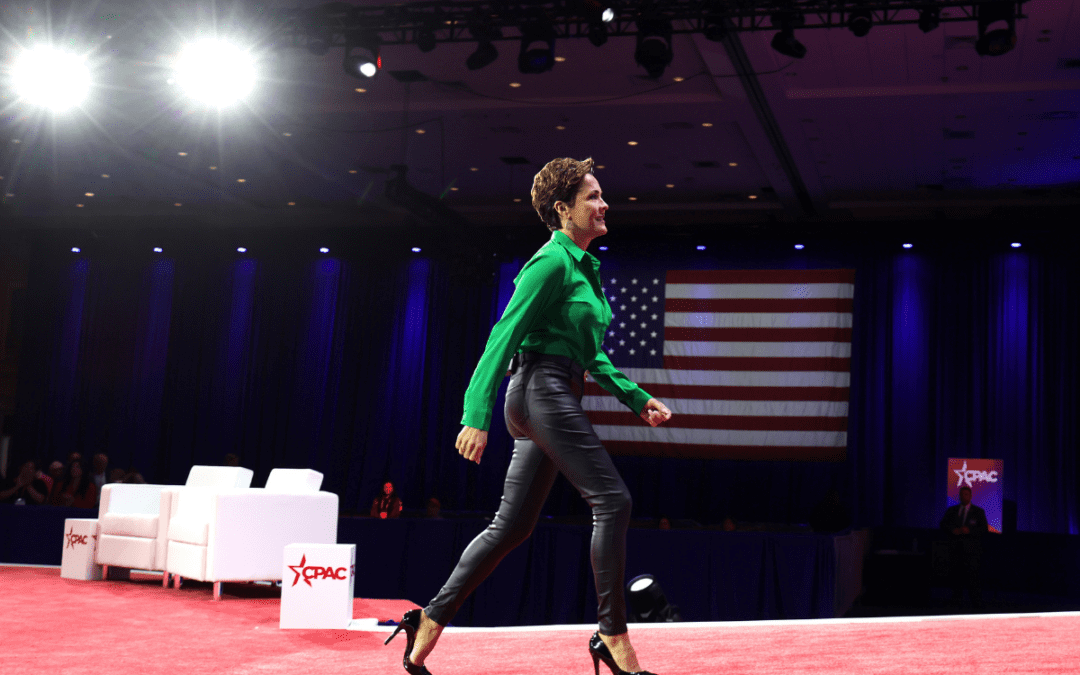
Kari Lake’s plan for the US Senate: ‘The end of democracy’
The world’s most far-right political leaders flocked to National Harbor, Maryland, last week for a conservative conference where attendants idolized...

Flight attendants picket at more than 30 airports in ‘unprecedented’ show of solidarity
Hundreds of flight attendants picketed at Phoenix Sky Harbor Airport last week, calling attention to stagnant wages with low purchasing power, poor...



